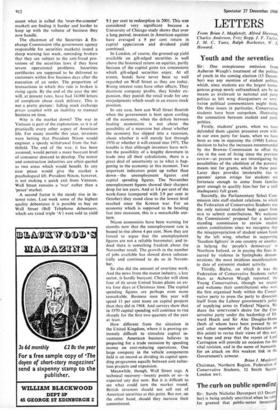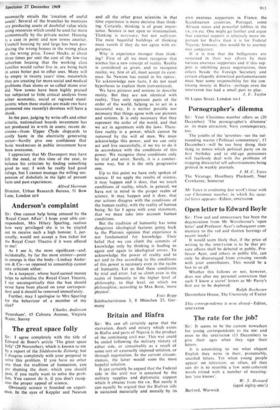The curb on public spending
Sir: Surely Nicholas Davenport (13 Decem- ber) is being unduly uncritical when he takes for granted that public-sector investor
necessarily entails the 'creation of useful assets'. Several of the branches he mentions are producing assets of doubtful value while using resources which could be used far more economically by the private sector. Housing is a case in point and new towns another. Council housing by and large has been pro- ducing the wrong houses in the wrong place at the wrong price. Tower blocks, at about three times per unit the cost of the low-rise suburban housing that the working class families would rather live in, are being built in areas better put to other uses. Many will be empty in twenty years' time, meanwhile they are creating far more social and medical problems than slums or so-called slums ever did. New towns have been highly praised but subjected to little critical analysis from either economic, social or regional stand- points; when these studies are made (we have pioneered one recently) devotees will have a shock.
In the past, judging by write-offs and other criteria, nationalised boards investment has not produced its worth in assets; recent de- cisions—from Upper Clyde shipyards to costly haste in the electricity generating sector—hardly give one confidence that basic weaknesses in public investment have been overcome.
I appreciate that Mr Davenport may have felt the need, at this time of the year, to balance his criticism by finding something good to say; I wish he really had good tidings, but I cannot manage the willing sus- pension of disbeliefs in the light of present facts and past experiences.
Alfred Sherman Director, Urban Research Bureau, 51 Bow Lane, London Ec4















































 Previous page
Previous page